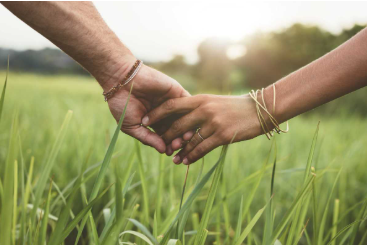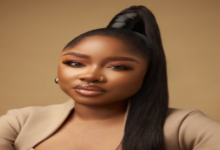How Women with Albinism Struggle with Romantic Relationships, Face GBV in Nigeria

|
Getting your Trinity Audio player ready...
|
Twenty-five-year-old Kofo Komolafe’s fear of rejection started when her father abandoned her. Kofo’s father is alive— she knows that much. She has tried a few times to contact him, but to no avail. All she knows is that she left him as a child because of her genetic condition. Born with albinism, the genetic disorder often makes the eyes, hair, and skin light. The condition also affects two million Nigerians.
Kofo’s mother is “quite light but not a person with albinism.” Her father? She knows little about him, despite making efforts.
“People will tell me they saw my father in a certain place. I will go to the place without my mom’s knowledge to look for him. But when I reach his last known location, they will tell me he is not there. But somehow, my mom would tell me to stop going to the place I visit to look for my father. How did she know?” Kofo said in a telephone conversation with me.
Unable to form a relationship with her father, she gives up trying, “I don’t even care about him anymore or want to know anything about him,” she said, her words taking form in anger.
However, the rejection Kofo faced as a child affected her as an adult. She would often beg men to show her affection to fill the void her father left, but she would face something far worse: gender based violence (GBV). This is a form of harm often perpetrated by men and disproportionately affects women. The United Nations sexual and reproductive health agency, UNFPA, reports that over one in three Nigerian women has suffered physical violence from men by age 15.
Kofo recounted dating a man for three years who cheated on her on several occasions and often beat her. One time she slept over at his place, she witnessed him raping a minor. When she confronted him about it, he beat her.
She left him and tried dating someone else. However, this time, the man’s mother was against the relationship. She claimed that people with albinism are “deities” typically thrown in bushes when they die. As such, she forbade the courtship.
Ms Olulana Elizabeth, a mother of four children living with albinism, dispelled the myth that people with albinism are deities. She affirmed that they are the same people as everyone else, with less melanin.
An inclusion advocate and a person with albinism, Elizabeth Adams, also recalls dating a man for just 5 days as a teenager because of her genetic condition. The man ended their relationship because his friends made fun of him on Facebook for dating a person with albinism.
Elizabeth, now in a long-term relationship, shared that many women with albinism are often trapped in abusive marriages because they don’t want to be stigmatised as a single mom, a divorced woman, or a person with albinism.
“It’s a very complex situation,” she said. “They believe they have very little chance of finding another partner if they leave.”
Acknowledging the complexity, Ms. Bisi Bamishe, the National President of the Albinism Association of Nigeria, advised women with albinism facing GBV to build up their courage and leave such a situation. She also urged the society to treat people with albinism with respect and dignity, describing it as a fundamental human right.
Ugochukwu Orji, the Director of Programmes of Onome Akinlolu Majaro (OAM) Foundation, an organisation that advocates for acts of love and kindness for the way people living with albinism are treated, advised that individuals must be humane in their relations with others. Similarly, Dr Jake Epelle, the founder and CEO of the non-governmental organisation, The Albino Foundation, urged for an honest and inclusive society.
Meanwhile, Kofo believes that she will eventually find the right person for a romantic relationship. “I tell this to my mother all the time,” she said.






